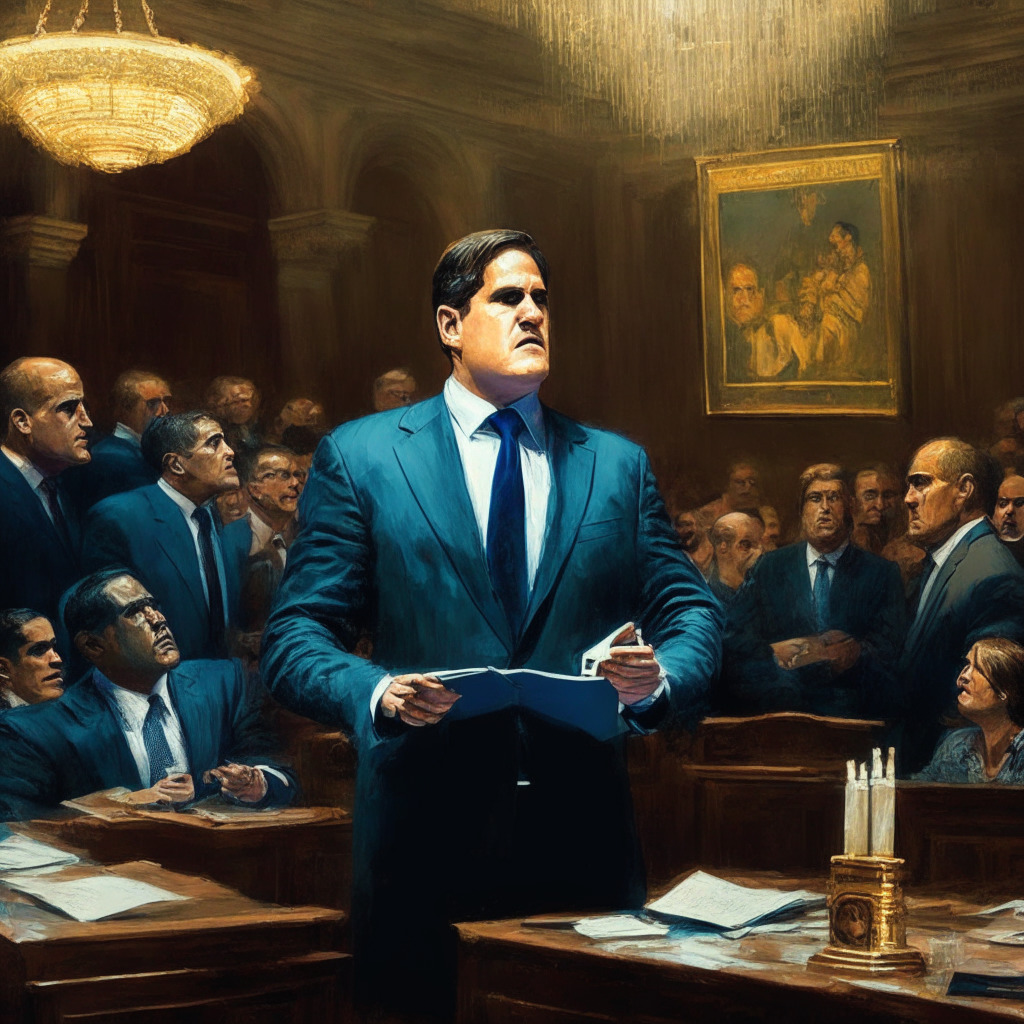Billionaire tech investor and Shark Tank star Mark Cuban has accused the U.S. Securities and Exchange Commission (SEC) of throwing crypto startups “under the bus” due to its approach to regulating the blockchain industry. In a recent debate with former SEC official John Reed Stark, a crypto skeptic, Cuban called for clear regulatory guidelines for the sector.
Cuban’s example of a crypto startup seeking SEC registration only to be told to find a lawyer illustrates the industry’s request for bright-line guidance. Major players like Coinbase, Binance, and Kraken have long criticized the SEC for not providing explicit crypto industry guidelines, such as those found in other jurisdictions. Specifically, they seek clarity on which crypto assets are securities versus commodities and how to register certain products with the commission easily, like staking-as-a-service.
Hester Peirce, a crypto-supportive member of the SEC, has also criticized chairman Gary Gensler on this issue. She laments that crypto-related offerings are not making it through the SEC’s registration pipeline. In contrast, Stark claims the industry has “extraordinary regulatory transparency and lucidity,” asserting that investment products must all comply with US securities laws.
Interestingly, Stark argues that blockchain crypto has not revolutionized the financial system as promised, in terms of store value or speedy payment rails. Cuban retorts that, like early internet companies, crypto companies need time to thrive, although the majority will likely fail. He estimates that 90 percent of blockchain firms and 99 percent of tokens will go broke but adds that “the winners will be game-changers.”
Additionally, Cuban suggests that many of the risks attributed to crypto are just as prevalent in the traditional banking system. For example, he highlights the “groupthink” investment mindset as something commonly seen in both sectors, arguing that it was groupthink that saved depositors of SVB by prompting the Feds to step in.
In conclusion, the debate highlights the ongoing need for more regulatory clarity in the blockchain and cryptocurrency sector. While industry leaders and some SEC members recognize the difficulties faced by startups navigating the current regulatory landscape, skeptics maintain that the existing rules provide sufficient transparency. A balanced approach to regulation is essential to ensure the continued growth and success of the crypto industry, foster innovation, and prevent the majority of startups from failing.
Source: Cryptonews




